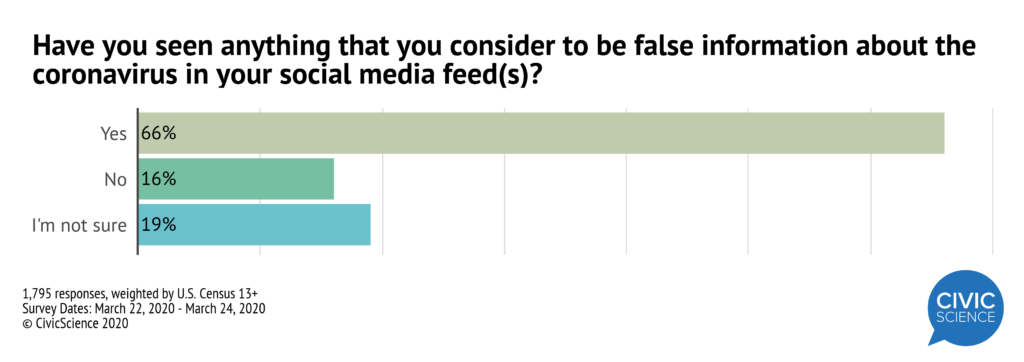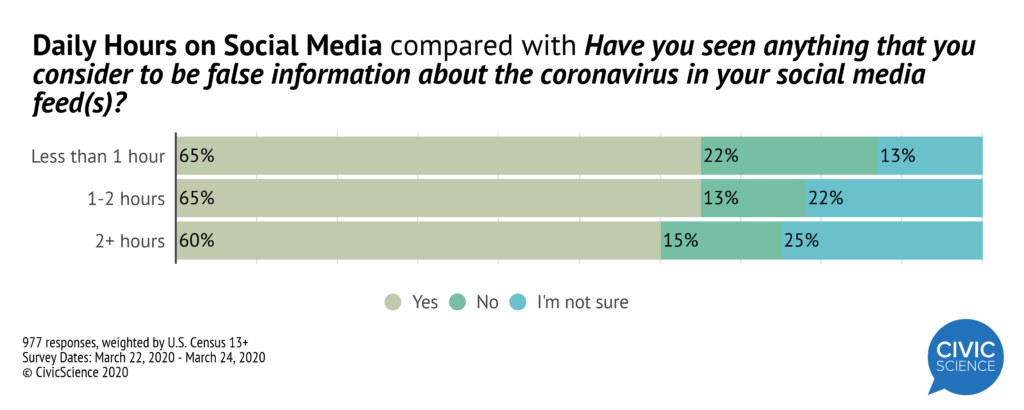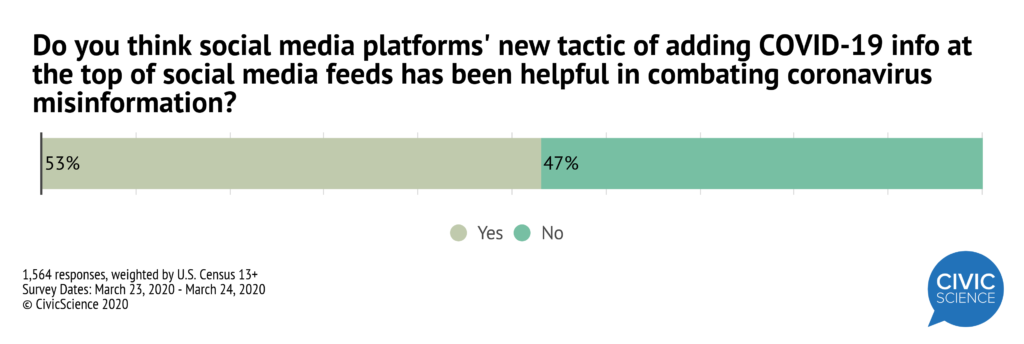As Americans remain cloistered in their homes this week to slow the spread of COVID-19, another aspect of the pandemic appears to be continuing to escalate unabated: misinformation.
The proportion of social media users who say they’ve encountered misinformation about the COVID-19 pandemic ticked upward slightly since last week, from 64% to 66%, in a CivicScience survey of nearly 1,800 social media users ages 13 and up across the U.S. The heaviest social media users were the most likely to say that they were uncertain about whether they had seen misinformation or not:
The heaviest social media users were the most likely to say that they were uncertain about whether they had seen misinformation or not:
 In an attempt to combat such misinformation, social media platforms like Facebook and Instagram have added coronavirus information resources to the tops of their users’ feeds. However, the success of those efforts remains an open question. Just more than half of the social media users surveyed who were familiar with these new tactics said they thought they were effective in fighting COVID-19 misinformation.
In an attempt to combat such misinformation, social media platforms like Facebook and Instagram have added coronavirus information resources to the tops of their users’ feeds. However, the success of those efforts remains an open question. Just more than half of the social media users surveyed who were familiar with these new tactics said they thought they were effective in fighting COVID-19 misinformation. Although the COVID-19 information provided by platforms like Facebook and Instagram is coming from trusted sources like the World Health Organization, the fact that the info is coming through social media in the first place may play a role in the perception of the data. In another CivicScience survey question, social media companies ranked next-to-last (just above retail brands) as trusted sources of COVID-19 information.
Although the COVID-19 information provided by platforms like Facebook and Instagram is coming from trusted sources like the World Health Organization, the fact that the info is coming through social media in the first place may play a role in the perception of the data. In another CivicScience survey question, social media companies ranked next-to-last (just above retail brands) as trusted sources of COVID-19 information. Understandably, healthcare and insurance companies were by far the most trusted sources of COVID-19 information. Beyond those organizations, there were two distinct tiers in terms of trustworthiness: media companies, the government, and nonprofit groups were far more trusted by Americans than tech companies, financial institutions, social media companies and retail brands.
Understandably, healthcare and insurance companies were by far the most trusted sources of COVID-19 information. Beyond those organizations, there were two distinct tiers in terms of trustworthiness: media companies, the government, and nonprofit groups were far more trusted by Americans than tech companies, financial institutions, social media companies and retail brands.
Overall, Americans’ worries about COVID-19 misinformation spreading on social media don’t seem to be abating, despite efforts by social media platforms to address the issue.








